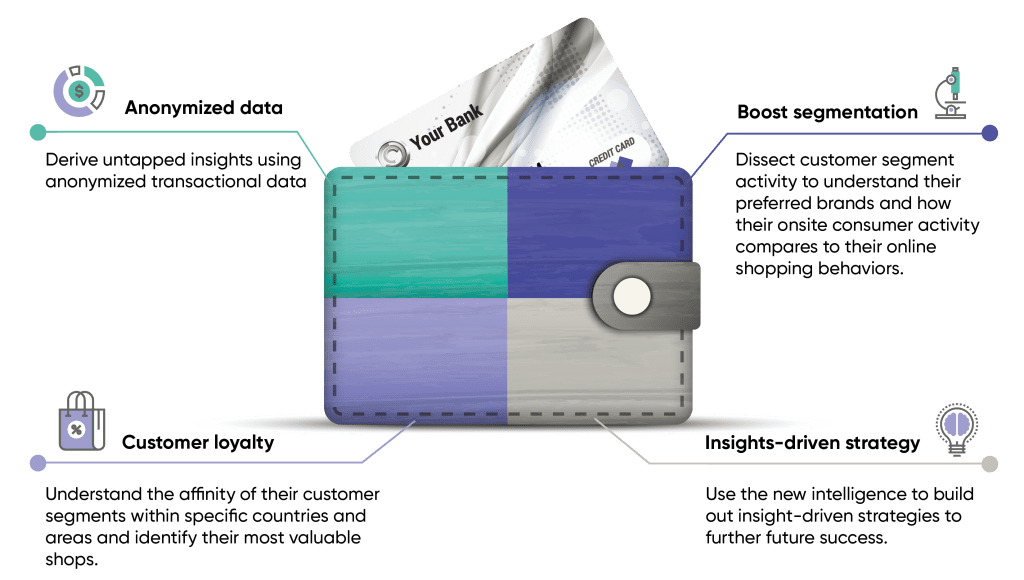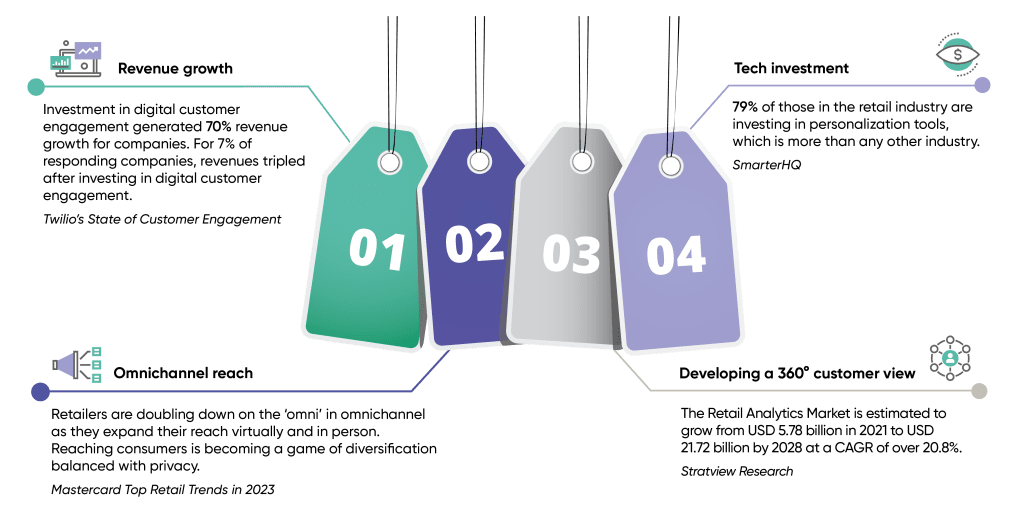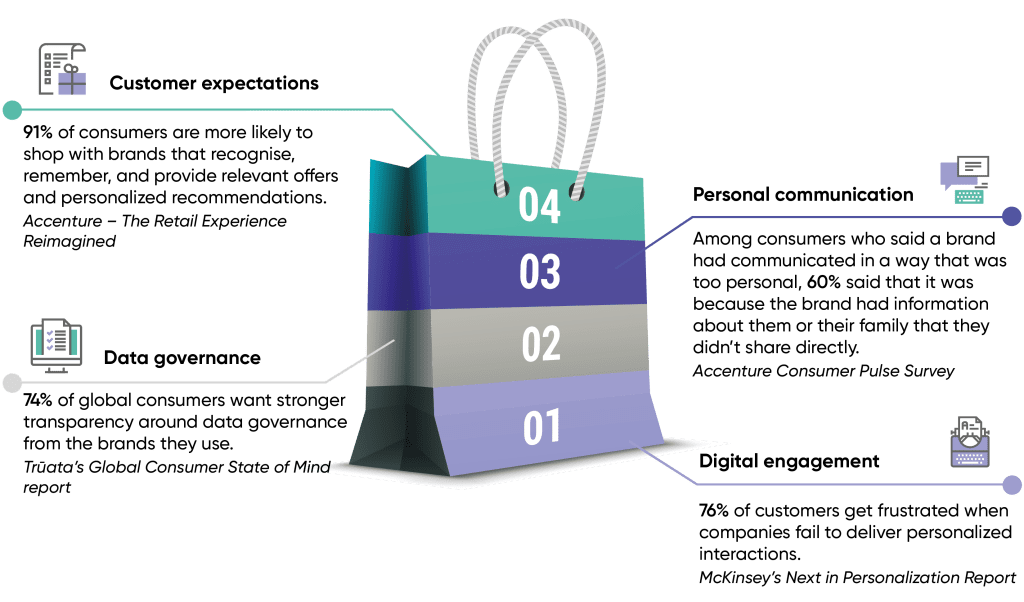
The retail industry relies heavily on data and analytics to understand customer behavior, preferences, and trends. Leveraging customer data in analytics programs can provide valuable insights that can help retailers make informed decisions about product offerings, marketing strategies, and overall business operations. However, it is important to ensure that customer data is used in a way that respects their privacy and trust, while also complying with global data privacy regulations.
Privacy-enhancing technologies (PETs) offer a new approach where retailers can unlock the full analytical value of customer data without compromising trust. PETs can deliver a framework using techniques that protect personal information while still allowing for meaningful analysis that can shape, customer engagement strategies and drive business growth. Data can be de-identified and aggregated with structures put in place to separate the analysts from the original source data, so that individual customers cannot be re-identified.
By balancing the need to analyze customer data with the need to protect customer privacy, retailers can gain valuable insights while also building and maintaining customer trust.
Use case: Privacy-enhanced retail analytics
Challenge:
- One of the UK’s most established retail chains wanted to build a deeper understanding of their business and customer performance through competitor benchmarking
- They want to know how they are performing against competitors, both online and instore
- They also wanted to know more about their customer segments, including what can be learned about their spending patterns across the retail sector and how loyal their customers are
Solution:
- Using Truata’s privacy-enhancing technologies that foster safe data collaboration, the retail brand was able to derive untapped insights from anonymized transactional data
Benefits:
- The retailer was able to dissect the activity and interests of their customer segments in order to understand their preferred brands and how their onsite consumer activity compares to their online shopping behaviors
- They were able to understand the affinity of these segments within specific countries and areas and identify their most valuable shops
- The retailer was able to use the new intelligence to build out insight-driven strategies to further future success
The importance of data in the retail industry
By collecting and analyzing data from sources such as customer transactions, website and social media analytics, and supply chain management systems, retailers can gain valuable insights into consumer behavior, preferences, and trends.

- Investment in Digital Customer Engagement Generated 70% Revenue Growth for Companies. For 7% of responding companies, revenues tripled after investing in digital customer engagement. Twilio’s State of Customer Engagement Report
- 79% of those in the retail industry are investing in personalization tools, which is more than any other industry. SmarterHQ
- From retail media networks to social commerce, retailers are doubling down on the ‘omni’ in omnichannel as they expand their reach virtually and in person. Reaching consumers is becoming a game of diversification balanced with privacy. Mastercard’s Top Retail Trends in 2023
- The Retail Analytics Market is estimated to grow from USD 5.78 billion in 2021 to USD 21.72 billion by 2028 at a CAGR of over 20.8%. Stratview Research
Finding the balance between analytical value and customer privacy
Balancing the need to become more data-driven and preserving customer privacy is a complex issue that requires careful consideration and attention from businesses. While analytics can help businesses gain valuable insights into customer behavior and preferences, collecting and using personal data can also pose serious privacy risks. Achieving the right balance can build trust with their customers, enhance their brand reputation, and achieve sustainable long-term growth.

- Almost three-quarters (74%) of global consumers want stronger transparency around data governance from the brands they use and (69%) global consumers say they are more likely to be loyal to a brand if they trust them to use personal data appropriately. Trūata’s Global Consumer State of Mind report
- Among consumers who said a brand had communicated in a way that was too personal, 60% said that it was because the brand had information about them or their family that they didn’t share directly. Accenture’s Consumer Pulse Survey
- McKinsey’s Next in Personalization Report found that seventy-one percent of consumers expect companies to deliver personalized interactions. And seventy-six percent get frustrated when this doesn’t happen.
- 91 per cent of consumers are more likely to shop with brands that recognise, remember, and provide relevant offers and personalized recommendations. Accenture’s The Retail Experience Reimagined
Trūata Pioneer
Trūata Pioneer delivers real-time business intelligence and robust data protection by providing access to privacy-compliant insights that are generated on anonymized data assets. Get in touch today to hear more.